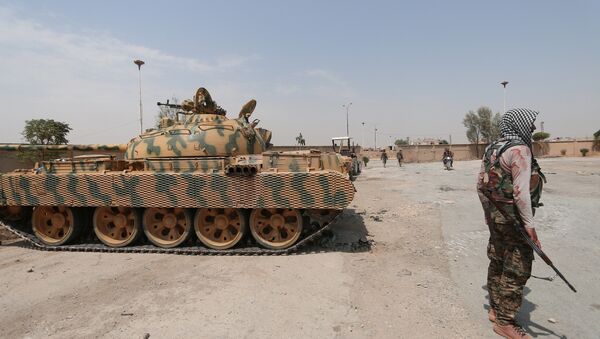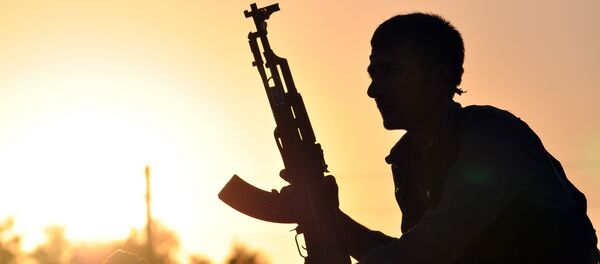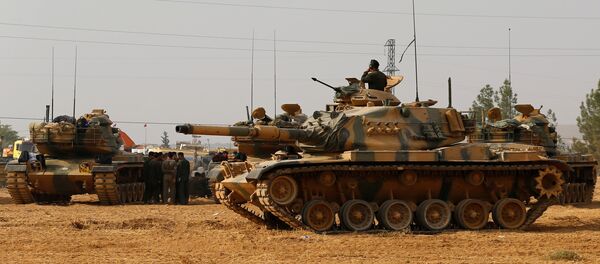Turkey has reiterated its stance that the US-led coalition must tackle Daesh terrorists in Syria without the involvement of the Syrian Kurds.
The country's top diplomat suggested that cooperation with the Kurdish People's Protection Units (YPG), which it considers a terrorist group, against "another terror group is a betrayal of our own values and of Syria's and Iraq's future."
He also noted that more than 200 Syrian Kurdish fighters still remain in the city of Manbij, despite promises given by Barack Obama, Joe Biden and John Kerry that they would withdraw to the east of the Euphrates.
"If you cannot send more than 200 of them back, how will you trust them in other places?” the Foreign Minister asked.
Turkish political analyst and expert in the Middle East Ahmet Kasım Han spoke to Sputnik Turkiye on the remarks of his country's foreign minister, suggesting that it is very unlikely that Washington will drop its "cooperation game" with YPG.
"The existing tenseness around the planned operation suggests that there is a certain degree of bargaining going on between the parties," he noted.
The political scientist said that Turkey insists on drawing in the units of the Free Syrian Army (FSA) instead of the Kurdish YPG. Taking into account Ankara's current priorities, he called it "quite a natural intention."
However Ahmet Kasım Han noted that amid sharp protests of many FSA fighters against cooperation with the US military on the ground in Syria, the chances that the US will consent to replace a "convenient" Kurdish ally with a military unstable FSA are close to zilch.
Taking the above into account, the political scientist suggested that the US, regardless Ankara's displeasure, will involve the Kurds in the operation on the liberation of Raqqa.
"The YPG apparently also intend to continue their cooperation with the US," he said.
"The Kurdish units currently control 600 km of the territory to the east of the Euphrates along the Turkish-Syrian border, homeland of the predominantly non-Kurdish population," he explained.
"Hence their task is to keep this territory under control and they will be definitely very reluctant to do it on their own. Thus we will see further cooperation between the Syrian Kurds and the US," the expert suggested.







